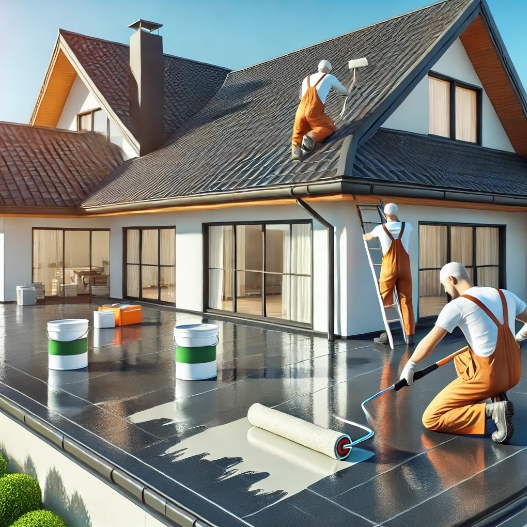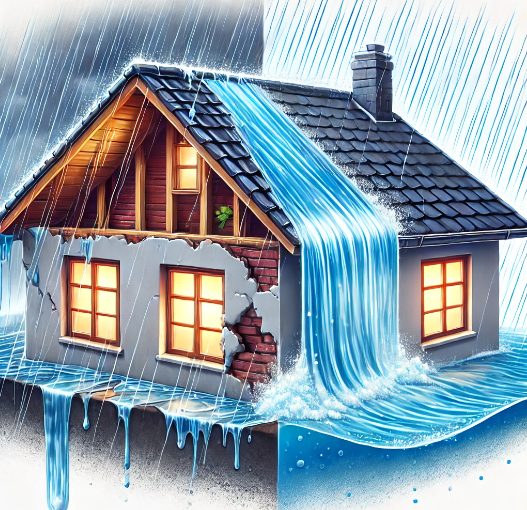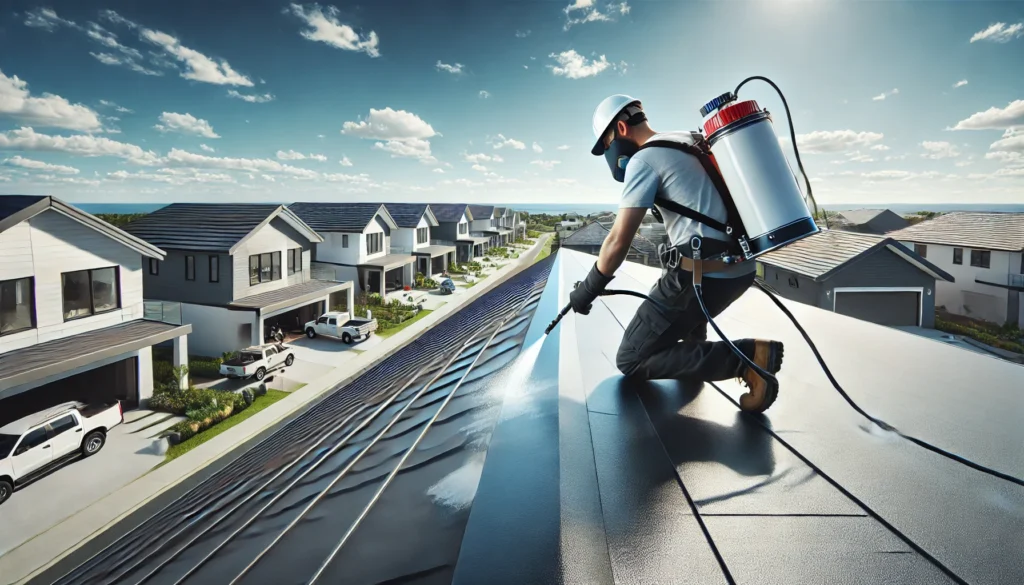Why Roof Need Waterproofing Services
Roofs are the shields that protect our homes from rain, sunlight, and harsh weather. But have you ever thought about what happens when the roof begins to let water seep through? Water damage to your roof is one of the most common problems faced by homeowners, and this is exactly why roof waterproofing is essential. In this article, we’ll dive deep into why roofs need waterproofing and how roof waterproofing services can save you from costly repairs and ensure long-lasting protection for your home.
Introduction: The Importance of Roof Waterproofing Services
Imagine your roof as an umbrella that covers your house. If there’s a tiny hole in that umbrella, it won’t take long before you’re soaked. The same goes for your roof. Even a small amount of water seeping into your home can cause major issues. Roof waterproofing is more than just an option; it’s a necessity to maintain the integrity of your home. Roof waterproofing services ensure that your roof remains a barrier against water damage, mold, and structural decay.
What is Roof Waterproofing Services?

Roof waterproofing is the process of making a roof resistant to water infiltration. This can be achieved by applying specialized materials or coatings that prevent water from penetrating through the surface of the roof. Waterproofing not only prevents leaks but also strengthens the roof structure, extending its lifespan.
Common Signs Your Roof Needs Waterproofing
How do you know when your roof needs waterproofing? Here are some telltale signs:
- Water stains on your ceiling or walls.
- Peeling paint or bubbling on walls.
- Mold or mildew growth in your attic.
- Dripping water after rainstorms.
- Sagging roof areas or visible cracks.
If you notice any of these signs, it’s a clear indication that your roof is vulnerable and in need of immediate attention.
Causes of Roof Water Damage

Water damage to roofs can occur due to a variety of reasons, such as:
- Age: Over time, roofs naturally deteriorate and lose their protective capabilities.
- Climatic Conditions: Heavy rainfall, snow, and humidity can weaken roofing materials.
- Poor Installation: If a roof is not properly installed, water can easily seep through gaps.
- Debris Accumulation: Leaves, branches, and dirt can clog gutters and cause water to pool, leading to leaks.
These factors accelerate the breakdown of your roof, making it more prone to water infiltration.
How Roof Waterproofing Services Work
Roof waterproofing services typically involve:
- Inspection: Professionals examine your roof for any existing damage or weak points.
- Cleaning: The roof surface is cleaned to remove debris, dirt, and any previous coatings.
- Application of Waterproofing Material: Depending on the material chosen, the coating is applied to seal and protect the roof.
- Final Checks: After application, the roof is inspected again to ensure it’s fully waterproofed.
Hiring experts ensures that the job is done correctly, saving you from future headaches.
Different Types of Roof Waterproofing Solutions
When it comes to waterproofing, there are several options to consider. Here are the most common types:
- Liquid Membrane: A flexible coating applied with a roller or spray gun, ideal for flat roofs.
- Bituminous Membrane: A popular choice for commercial buildings; these membranes are durable and weather-resistant.
- Polyurethane Coating: Highly effective for waterproofing, offering excellent durability and resistance to wear and tear.
- Cementitious Waterproofing: A straightforward option, often used for internal areas like bathrooms and basements.
Each method has its pros and cons, so consulting with professionals is crucial for choosing the right one for your home.
Benefits of Roof Waterproofing
Waterproofing your roof offers several advantages, including:
- Preventing Leaks: It stops water from entering your home and causing structural damage.
- Improving Durability: Waterproofing materials strengthen your roof, making it more resilient to weather conditions.
- Reducing Energy Costs: By sealing gaps and cracks, waterproofing can help insulate your home, reducing heating and cooling expenses.
- Preventing Mold Growth: Keeping moisture out of your home prevents the formation of harmful mold and mildew.
These benefits not only protect your home but also increase its value.
The Cost of Roof Waterproofing
The cost of roof waterproofing varies depending on factors such as:
- Size of the roof: Larger roofs require more materials and labor.
- Type of waterproofing material: Different materials come with different price tags.
- Extent of damage: If repairs are needed before waterproofing, costs will increase.
While the upfront cost may seem high, it’s an investment that saves you money in the long run by preventing expensive repairs.
DIY vs Professional Roof Waterproofing
While some homeowners may be tempted to waterproof their roof themselves, it’s often best to hire professionals. Here’s why:
- Experience: Professionals know what to look for and how to apply waterproofing materials correctly.
- Quality Materials: Experts have access to higher-quality waterproofing products that are not typically available to the general public.
- Warranty: Professional services often come with warranties, giving you peace of mind.
DIY may save money initially, but improper waterproofing can lead to costly mistakes.
The Best Time to Waterproof Your Roof
Timing is key when it comes to roof waterproofing. Ideally, you should:
- Waterproof during dry seasons: Rain and moisture can interfere with the application process, so it’s best to waterproof when the weather is dry.
- After roof repairs: If you’ve recently repaired any leaks or damage, it’s the perfect time to add a waterproofing layer.
Being proactive can help you avoid emergencies down the road.
How Often Should You Waterproof Your Roof?
On average, a roof should be waterproofed every 5 to 10 years. However, this can vary based on factors like climate, roof material, and the quality of previous waterproofing jobs. Regular inspections can help you determine when it’s time to reapply waterproofing.
The Dangers of Ignoring Roof Waterproofing
Ignoring roof waterproofing can have serious consequences, including:
- Structural damage: Water can weaken the foundation of your home, leading to costly repairs.
- Health hazards: Mold and mildew growth caused by leaks can affect indoor air quality and lead to health problems.
- Increased energy bills: A damaged roof can cause heat or cool air to escape, leading to higher energy costs.
Don’t wait until it’s too late to address these issues.
Environmental Impact of Roof Waterproofing
Some roof waterproofing materials may have an impact on the environment. However, eco-friendly options are available that minimize harm while providing the same level of protection. Additionally, waterproofing can improve energy efficiency, reducing your home’s carbon footprint.
How to Choose the Right Waterproofing Services
Choosing the right roof waterproofing services can be overwhelming, but here are some tips:
- Check for certifications and warranties.
- Read reviews and ask for references.
- Get multiple quotes to compare prices and services.
A trustworthy service provider will guide you through the process and offer the best solutions for your roof.
Conclusion: Protect Your Roof, Protect Your Home
Waterproofing your roof is not just a maintenance task—it’s a critical step in protecting your home and ensuring its longevity. By investing in roof waterproofing services, you’re not only preventing costly damage but also creating a safer, healthier living environment.
